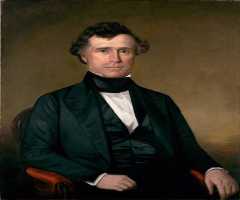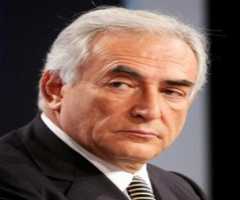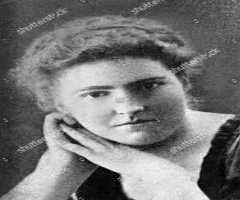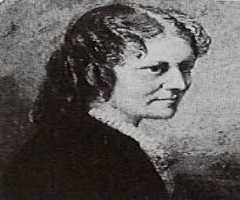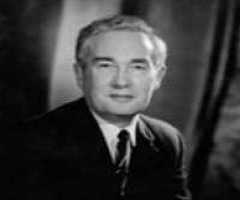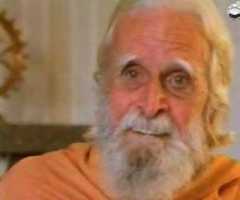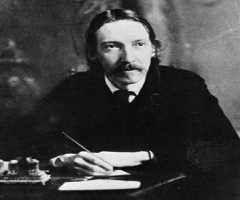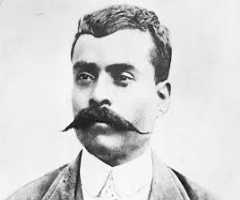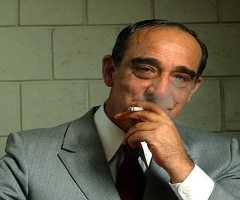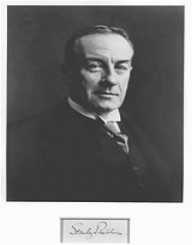
Also Known For : Prime Minister
Birth Place : Bewdley, England, United Kingdom
Died On : December 14, 1947
Zodiac Sign : Leo
Stanley Baldwin Biography, Life, Interesting Facts
Early Life
Stanley Baldwin was born on 3 August 1867 in Bewdley, Worcestershire, England. He was the only son of an affluent manufacturer and Affiliate of Parliament. Rudyard Kipling, the writer, was Baldwin's cousin on his mother's side of the family. Subsequently graduating from Cambridge University, Baldwin joined the family iron-mongering industry. Subsequently studying at Harrow and Trinity College, Cambridge, he worked for a short-term for his father who was the Chairman of the Great Western Railway. From 1908 to 1937 he worked as an associate of the House of Commons.
He became Conventional MP for Bewdley in 1908, a seat his father once occupied. By the next round of elections in 1922, he was elected as Chancellor of the Exchequer.
Early Acclaim
Stanley Baldwin turned out to be the Prime Minister for the first time in 1923. He announced a universal selection to pursue support and provision for the administration’s strategies to announce defensive tariffs. This election was also for occupation defense in order to cut job loss. He was unsuccessful in a recall that jolted his administration, and this gave way for Ramsay Macdonald’s era.
The following ten months, Baldwin maintained MacDonald’s administration on a few matters. However, he decided to vote in contradiction of them over the Russian treaties. In the 1924 universal selections, the Conservatives accomplished an enormous majority, and Baldwin became the Prime Minister once more.
In order to get a resolution to the countrywide difficulty of power, he formed a commission which was controlled by Lord Weir. The cure provided was the formation of the Central Electricity Board, which positively amplified the production and quantity of customers. It also reduced the producing prices.
It was his administration in 1925 that introduced the widows, orphans and old age contributory Pensions Act. This Act provided a pension of ten shilling a week for widows and more if they had children. It also provided ten shillings for insured workers and their wives upon reaching sixty five years of age.
Under his occupancy, the administration even tolerated the General Strike of 1926 which shaped chaos in the UK. A year advanced, and he conceded the Trade Disputes Act which made universal raids unlawful.
The 1929 universal votes were secured by the Labor party. Baldwin suffered a severe party catastrophe, with tried to force his notice as party leader. In 1931 he returned to the administration as an associate of Ramsey’s National Coalition and in 1935. He then became the PM once more when Ramsey stepped down.
Common Attribution
Stanley Baldwin was the first designated Earl Baldwin of Bewdley. He was also one of the early conservative politicians. He worked as the Prime Minister on three occasions amongst 1923 and 1937. He ruled the administration amid both world wars, throughout the General Raid of 1926 and the resignation calamity of 1936. Baldwin came from a family of well-heeled manufacturers.
He assisted his father make what was one of Britain’s main iron and steel companies, Baldwins Ltd. His mother’s household had creative and fictional interests. She was the first cousin of the author and bard Rudyard Kipling after all. Baldwin didn’t have any radical cunning.
However, he made up for it through his standards of correctness, assistance, and reconciliation. This effortlessly struck chords with the British community. Stanley Baldwin leaves a kindly figure and the essence of British middle-class restraint contrary to a stormy and frightening European world.
Sharing the stage with the likes Lloyd George, Winston Churchill and Neville Chamberlain shadowed Baldwin. However, he was skillful in acting conclusively like in the achievement of the 1936 Public Order Act.
Other Notable Mentions
Stanley Baldwin had a political career that was filled with highlights that were no doubt, remarkable. He was given credit for sustaining the government peacefully and successfully through the turbulent times of the 1926 General Strike. Also worthy of note was the passing of the Trades Dispute Act in the year 1927, to curb the disruptive force of union activities.
The work that let him bid a happy exit was the successful abdication of King Edward. It can be recalled that the king was keen on marrying Wallis Simpson. She was a lady thoroughly despised by Baldwin and distrusted by the government. Even the citizens wouldn’t have tolerated a 2-time divorced woman as their queen.
Baldwin understood the dicey equation and asked the king to choose the path that would rebuild the constitutional integrity. This ended up in the King abdicating the Crown. This bold and outright proclamation raised the status of Baldwin amongst the citizens.
During his run as Prime Minister he served under George V, Edward VIII and George V. He was also a key figure during the General Strike of 1926, the Ethiopian crisis of 1935 and the abdication crisis of 1936.
Family
He married Lucy Ridsdale on September 12, 1892. From the marriage, they had seven children. Lucy died on June 17th, 1945. At this time, Stanley Baldwin had become sickly and deaf. Their son, Oliver, became the second Earl Baldwin of Bewdley.
